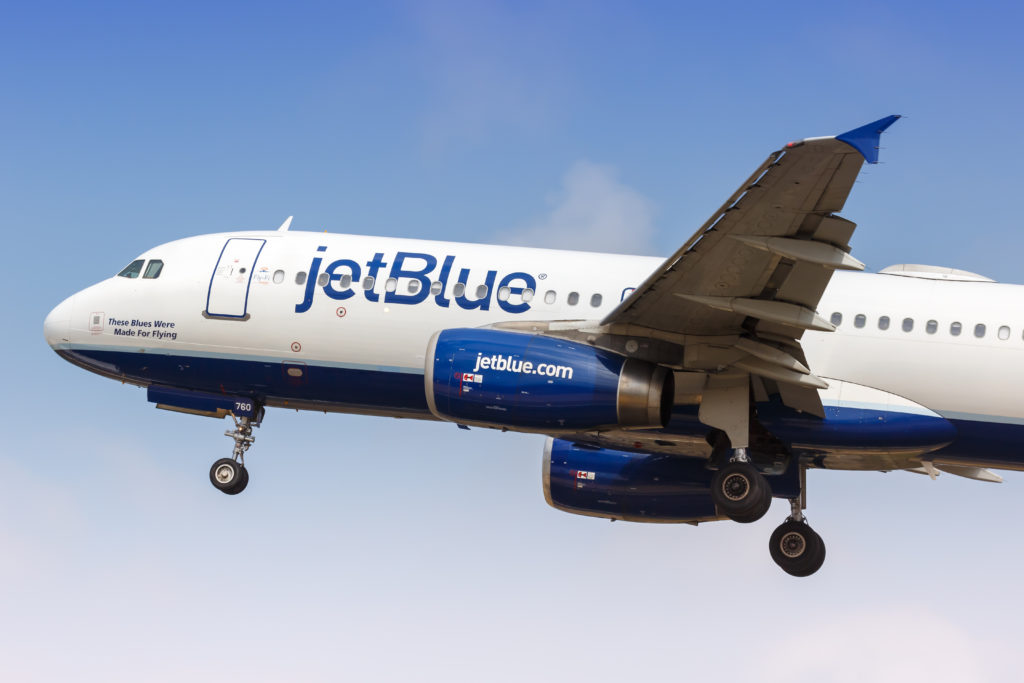The airline states that a packet of artichokes it sells has Kof-K supervision when it does not.
By Batya Jerenberg, World Israel News
A prominent American kashrut agency filed a lawsuit on Thursday accusing JetBlue Airways of falsely stating that one of the foods served aboard its airplanes is kosher.
Kosher Supervision Service, Inc. owns the Kof-K symbol, which has been used since the early 1970s as a certifying mark that food is kosher. According to the company’s complaint, JetBlue’s “SavorUp” snack box contains a package of artichokes which the low-cost airline says is certified kosher by the Kof-K, when it does not supervise the food in question.
The entire snack box is also advertised as kosher.
The suit, filed in federal court in New Jersey, alleges that JetBlue had committed deceptive trade practices, trademark infringement and false designation of origin. The incorrect packaging constitutes “consumer fraud” under New Jersey law, it said, and is apt to “deceive and confuse the Kosher eating public.”
Kof-K added that it has never certified any of the airline’s products, nor allowed it to use its trademarks.
The agency is asking for an undisclosed sum of money in damages, and for the court to compel JetBlue to stop selling the snack and using its trademarks.
The kashrut agency does not relate to whether the Elma Farms product is actually kosher, and the brand has not been made a co-defendant in the case. The complaint is solely against JetBlue’s false advertising.
In reaction, JetBlue said in a statement, “The recent complaint filed is the first we were made aware of Kof-K’s trademark concern. We are currently investigating their claims.”
Kof-K is one of the most well-known kashrut marks in the Orthodox Jewish world. It certifies thousands of foods and pharmaceutical products, as well as vendors, restaurants, and other suppliers of kosher products and services.
One of the more famous products it certifies is Ben & Jerry’s ice cream. When the company’s board of directors announced last July that it would drop its long-time Israeli licensee at the end of 2022 because they do not want to sell the frozen treats in “the Occupied Palestinian Territories,” many consumers called for Kof-K to drop its certification in retaliation.
While the Australian kosher certification board KA delisted the ice cream “in support of those who proudly reside in Yehuda v’Shomron (Judea and Samaria),” the Kof-K did not. The company said it had based its decision “on the advice of the Yesha Council,” the body that serves as the political arm of the residents of Judea and Samaria.
It added that the company had expressed its opposition to the new policy both to Ben and Jerry’s and to its parent company, Unilever, and would use what influence it had “to make sure that this anti-Israel policy never becomes implemented.”


